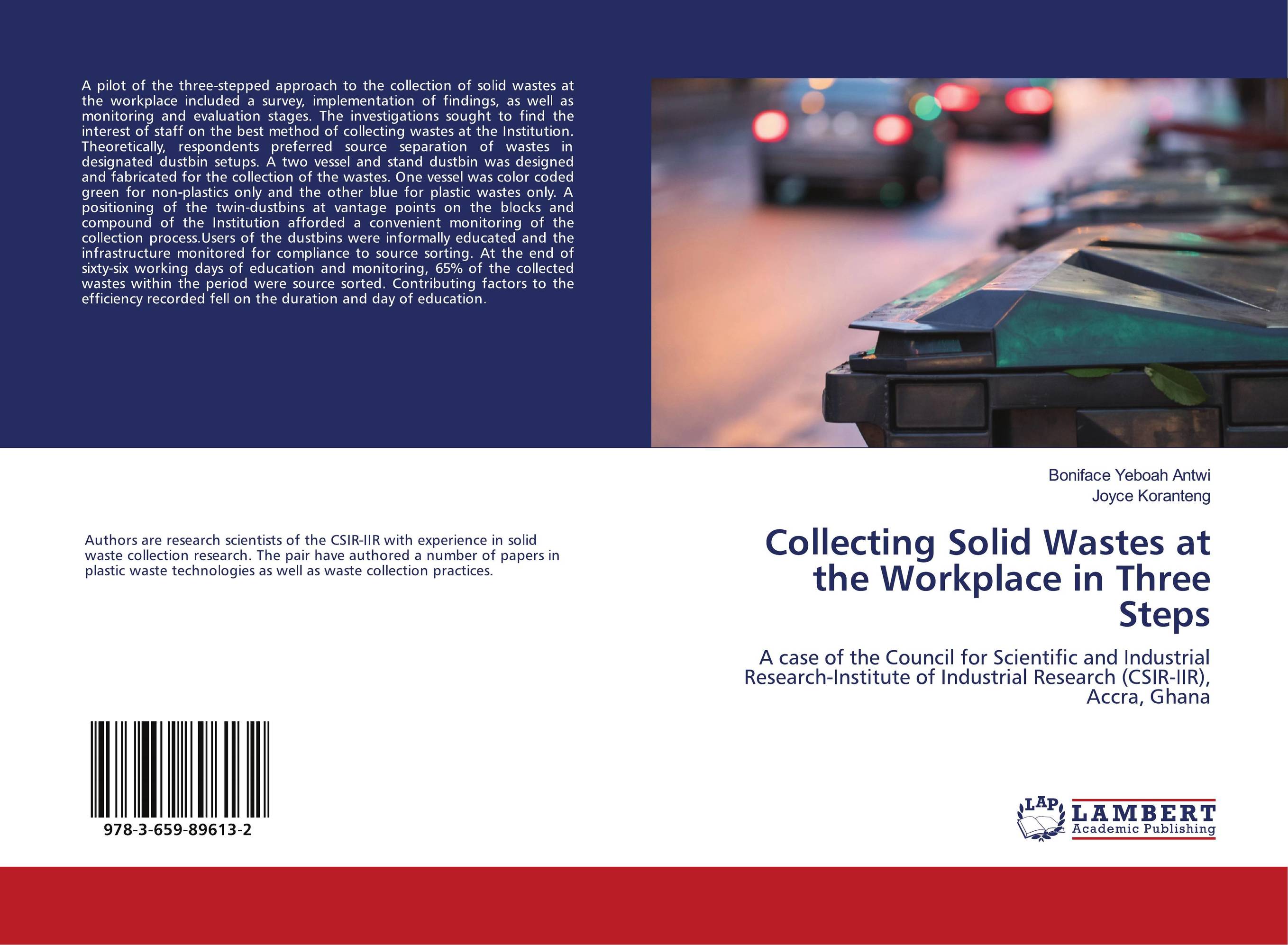| Поиск по каталогу |
|
(строгое соответствие)
|
- Профессиональная
- Научно-популярная
- Художественная
- Публицистика
- Детская
- Искусство
- Хобби, семья, дом
- Спорт
- Путеводители
- Блокноты, тетради, открытки
Collecting Solid Wastes at the Workplace in Three Steps. A case of the Council for Scientific and Industrial Research-Institute of Industrial Research (CSIR-IIR), Accra, Ghana

В наличии
| Местонахождение: Алматы | Состояние экземпляра: новый |

Бумажная
версия
версия
Автор: Boniface Yeboah Antwi and Joyce Koranteng
ISBN: 9783659896132
Год издания: 2020
Формат книги: 60×90/16 (145×215 мм)
Количество страниц: 56
Издательство: LAP LAMBERT Academic Publishing
Цена: 23066 тг
Положить в корзину
| Способы доставки в город Алматы * комплектация (срок до отгрузки) не более 2 рабочих дней |
| Самовывоз из города Алматы (пункты самовывоза партнёра CDEK) |
| Курьерская доставка CDEK из города Москва |
| Доставка Почтой России из города Москва |
Аннотация: A pilot of the three-stepped approach to the collection of solid wastes at the workplace included a survey, implementation of findings, as well as monitoring and evaluation stages. The investigations sought to find the interest of staff on the best method of collecting wastes at the Institution. Theoretically, respondents preferred source separation of wastes in designated dustbin setups. A two vessel and stand dustbin was designed and fabricated for the collection of the wastes. One vessel was color coded green for non-plastics only and the other blue for plastic wastes only. A positioning of the twin-dustbins at vantage points on the blocks and compound of the Institution afforded a convenient monitoring of the collection process.Users of the dustbins were informally educated and the infrastructure monitored for compliance to source sorting. At the end of sixty-six working days of education and monitoring, 65% of the collected wastes within the period were source sorted. Contributing factors to the efficiency recorded fell on the duration and day of education.
Ключевые слова: Solid wastes collection, Institutional solid wastes, Plastic wastes, source sorting, Solid wastes



